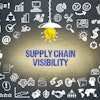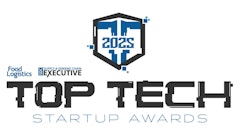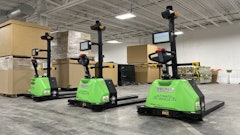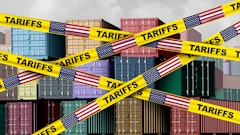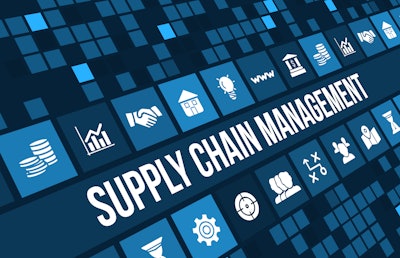
Supply disruptions have become increasingly frequent across all industries, but few sectors have felt the strain more than the food and beverage industry. The sensitive nature of sourcing perishable goods, such as fruits and vegetables, is only one part of the equation. There's also the critical aspect of quality to consider, especially when it comes to raw materials like coffee beans, spices, or grains. Factors like overly wet or dry seasons can drastically affect the taste and consistency profile of these raw materials. This double vulnerability—both to the perishable nature and to the quality of goods—has made the food and beverage supply chain uniquely susceptible to disruptions.
It’s no wonder food and beverage supply chain companies are nearly three times more likely to make decisions due to supply disruption than those in other industries, according to a 2023 Gartner survey. This year global heatwaves, floods across China's grain belt, and rampant wildfires have highlighted the precarious nature of the world's most-consumed crops. In India, rice production has been constrained by both droughts and heavy rains, leading to a ban on rice exports and international price hikes. These events have led to significant reductions in crop yields in high-risk regions, impacting food prices and supply chains. Sugar prices, too, have increased roughly 40% over last year, leaving companies to pass on added costs to the consumers
Why are these disruptions occurring with increasing frequency? Climate change projections consistently suggest alarming reductions in crop yields, especially in high-risk regions impacted by extreme weather. In addition to environmental factors, geopolitical conflicts, such as those in Ukraine and Russia, have further destabilized the supply chain, leading to unprecedented market impacts. Long-standing grain deals have been suspended, and major production regions face severe droughts, creating a volatile and unpredictable market.
Unfortunately, experts predict that such disruptions are not just likely to continue but will increase in scale and impact, underscoring the need for the industry to adapt and build more resilient and agile supply chains. Companies need to diversify their sourcing and better prepare for the unexpected to ensure stability and quality in an increasingly unstable environment where raw material availability is extremely variable and transportation disruptions are common. All of this requires a significant investment in digital supply chain solutions so they can promptly analyze their situation and better react in real time. These abilities are the backbone of resilient supply chains.
Digitalization is the most dependable strategy for companies to minimize the impact of these increasingly common disruptions and improve their agility and resiliency. For food and beverage retailers, real-time tracking, predictive analytics, and agile operational tools are no longer “nice-to-haves." They are necessities for navigating an industry where even the most dependable supplies can no longer be taken for granted.
Seamless supply chain management during turbulent times
A multi-enterprise platform offers an integrated approach to managing the complexities of the food and beverage supply chain. Unlike manual supply chain processes, these platforms allow for real-time data sharing at all tiers of the supply chain network, a crucial feature that 90% of food and beverage manufacturers still lack. This real-time data sharing can foster unparalleled collaboration and alignment across departments, allowing companies to make strategic decisions with unprecedented speed and accuracy and ensure quality control at all stages, from raw materials to finished foods.
Multi-enterprise platforms introduce a comprehensive approach that merges digitalization, optimization, and scalability into a unified solution. Under old management systems, the journey from product discovery to store shelves was often fragmented, with distinct stages like specification, formulation, packaging, and compliance managed through disparate systems and different supply chain departments working from non-standardized information. All that creates inefficiencies, higher costs, and slower response times to sudden market changes.
Those outdated management systems also lack visibility, which leads to delayed decision-making and increased errors. A multi-enterprise platform corrects this shortfall, establishing real-time data sharing and unparalleled transparency earlier in the supply chain. This enhanced visibility empowers more strategic, data-driven decisions while fostering collaboration across departments, ensuring everyone from product developers, sourcing managers, and quality teams are aligned. Having this information in real time allows companies to make accelerated and more strategic decisions when their supply chain is seriously disrupted. A multi-enterprise platform also enables flexibility in formulation changes without affecting the claims on packaging. In an industry where consumer trends can shift rapidly, being able to adjust formulations while maintaining packaging integrity is invaluable.
When responding to disruptions, brands and retailers need to make sure they maintain their standards of sustainability and responsible sourcing. Multi-enterprise platforms ensure there are no lapses. Their advanced traceability tools allow businesses to map their supply chains down to the Nth-tier, which is key to staying ahead of global ESG laws and consumers’ growing expectations of responsible sourcing.
Meanwhile, advanced monitoring capabilities within a multi-enterprise platform screen for ESG compliance and certifications across suppliers, offering timely alerts for any potential red flags and ensuring ingredient suppliers live up to your standards of social and environmental sustainability. By automating this crucial function, the platform ensures your sourcing team only considers responsible suppliers. The platform can even prevent shipping departments from booking shipments from non-compliant factories, or from authorizing shipments with missing chain of custody information in cases where such documentation is required.
The need for comprehensive, agile, and intelligent supply chain solutions has never been clearer. Multi-enterprise platforms provide a unified, digitalized solution that optimizes workflows, enhances visibility, and supports sustainability, all in the service of a more robust and resilient supply chain. As the frequency and impact of supply disruptions increase, multi-enterprise platforms provide the enhanced resilience that the food and beverage industry desperately needs.

